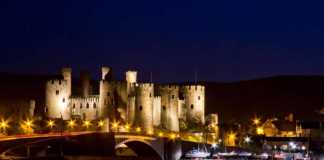Magnificent peaks tower-like white citadels against the brilliant blue sky while the long frosty tongue of the Aletsch Glacier reaches out into a never-ending white valley. The view from the Jungfraujoch, which is a platform at the top of Europe, 3454m above sea level, takes my breath away. The train journey aboard the Jungfrau railway to Europe’s highest altitude railway station is a bucket list experience.
Standing on the southern ridge of the mountain, gazing at the jaw-dropping scenery, I can’t help thinking that if there is a heaven, thus must surely be it.
Contents
Jungfrau Railways Experience
Jungfraujoch World Heritage
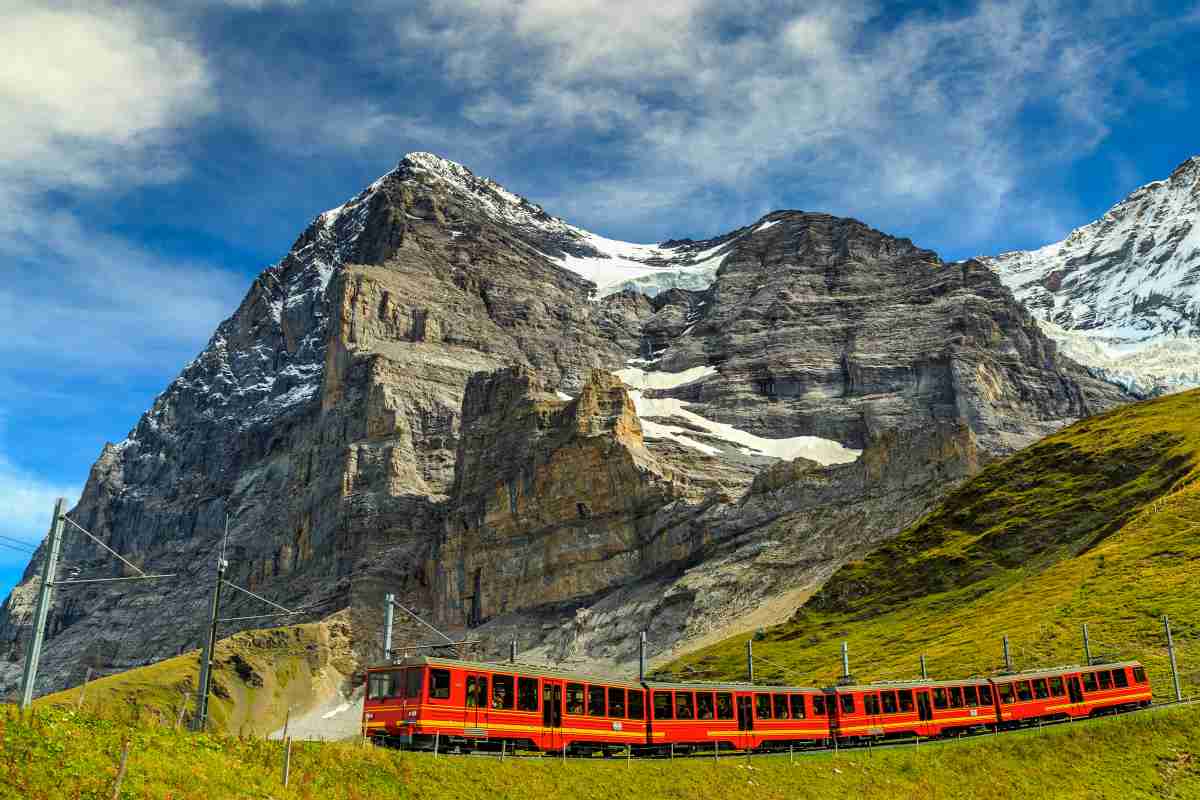
Located in the Jungfrau-Aletsch-Bietschhorn region, the Jungfraujoch is a UNESCO World Heritage area and one of the most stunning Switzerland landmarks.
This region was the first to become an Alpine UNESCO World Natural Heritage Site in 2001.
Centred around the frozen landscape of the Great Aletsch Glacier, the Eiger, Mönch and Jungfrau mountains are breathtaking sights that have inspired artists, writers and poets over the centuries.
The Jungfrau is not the highest mountain in Switzerland but together with the Eiger and the Monch, the area is one of the most stunning Swiss mountain regions.
There are several vantage points you can go to see the Aletsch Glacier, all accessed by mountain railways of cable cars, such as Moosfluh, Bettmerhorn and Eggishorn.
However, taking the railways up the Jungfraujoch is an experience for your bucket list!
The amazing thing about the Jungfraujoch is that before 1912, you would have had to be a skilled mountain climber to reach this height.
These days, thanks to Swiss innovation and engineering, ordinary travellers are able to experience the extraordinary white beauty of these incredible Jungfrau mountains by rail.
It’s an experience both my husband and I still talk about, years later.
Also read: 70 Inspiring Quotes About Mountains.
How to get to the Jungfrau Mountain
Getting from Interlaken to the top of Europe is a scenic rail journey and an exciting one for train buffs. You travel on three separate trains – the Berner Oberland Railway, the cogwheel Wengernalp Railway and the Jungfrau Railway. In 2021, the Eiger Express is another option between Grindelwald Terminal and Eigergletscher station.
Berner Oberland Railway
Interlaken to Lauterbrunnen or Grindelwald
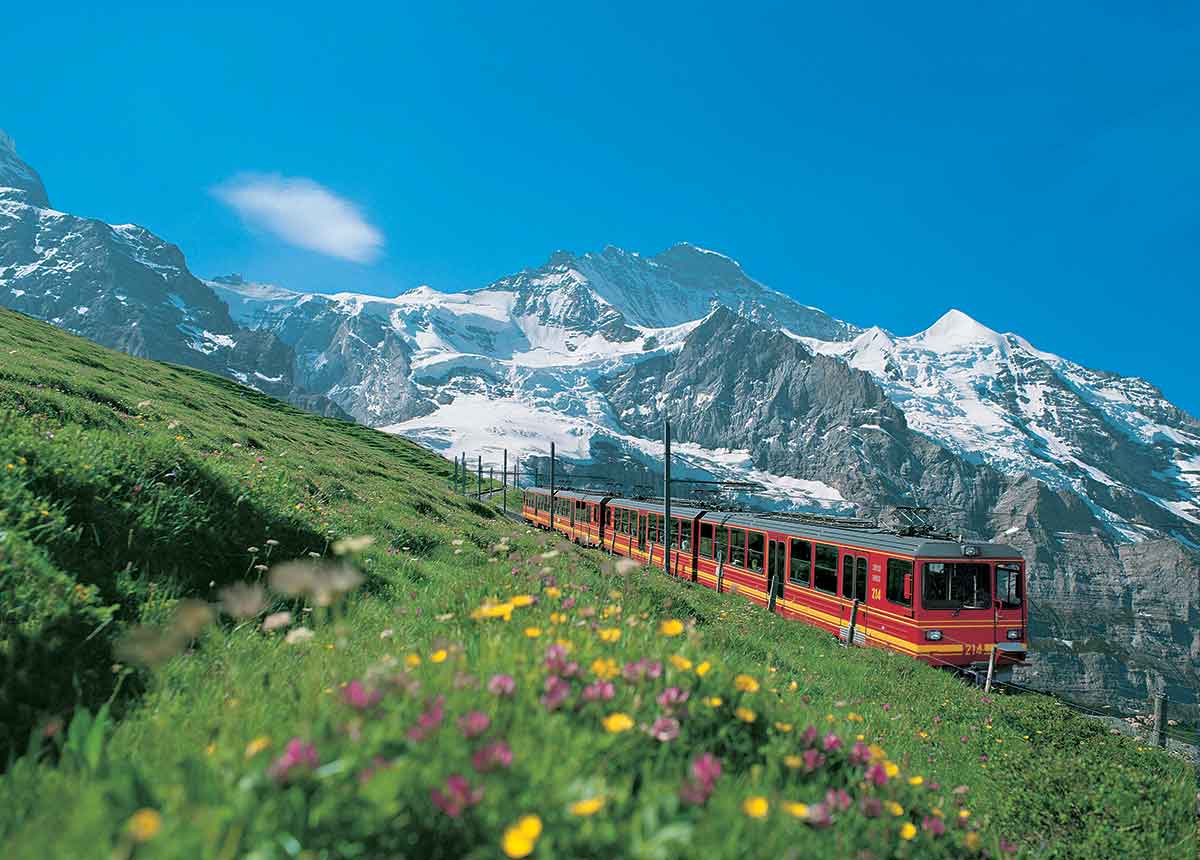
The Berner Oberland Railway starts from Interlaken, a charming town with picture-postcard views.
You can take this train from Interlaken to Lauterbrunnen or Grindelwald. The fastest way is to go via Grindelwald and board the Eiger Express cable car.
In itself, Interlaken is a picture-perfect Swiss town worth spending time in for its lovely views and charming atmosphere.
Interlaken lies on a flat valley floor between the lakes of Brienzersee and Thunersee.
The Lauterbrunnen Valley can easily be visited as a day trip from Bern too if you happen to be in the Swiss capital.
Option 1: Eiger Express Cable Car
Grindelwald to Eigergletscher
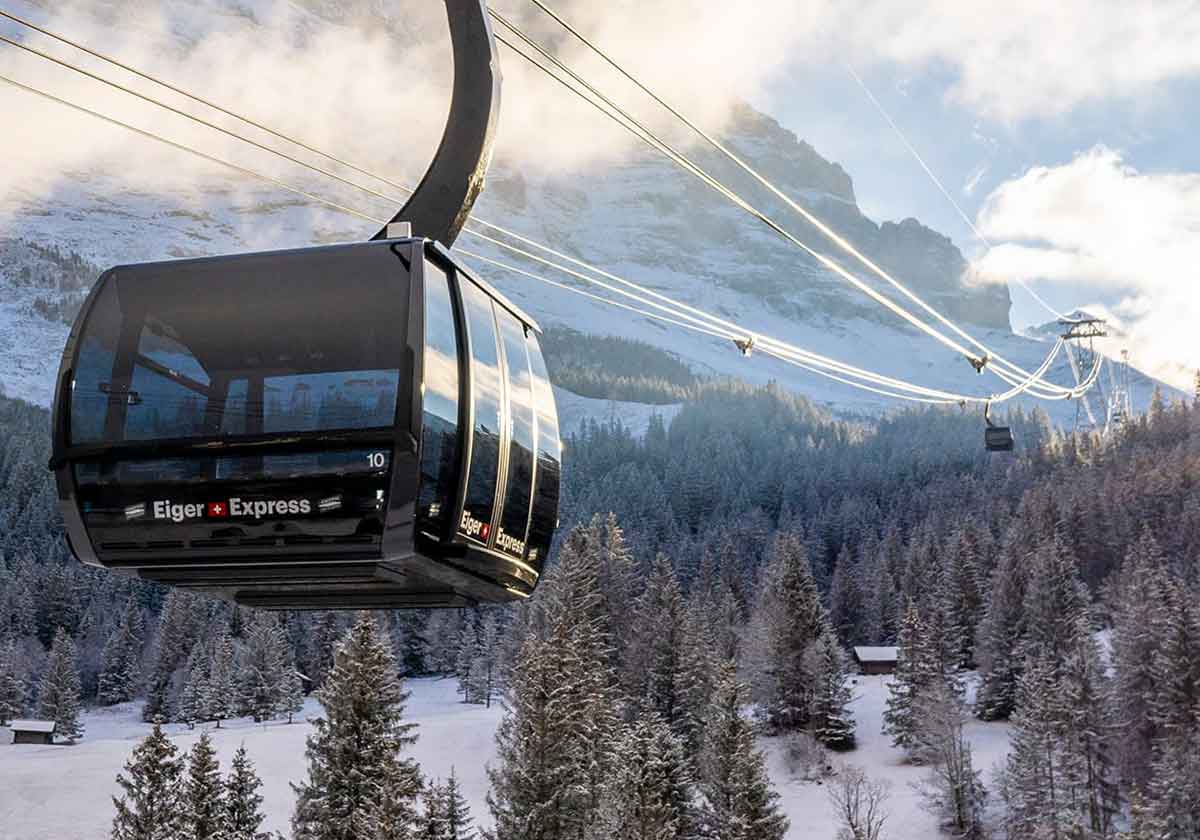
Although the train journeys to the top of Europe are quite an experience, the new Eiger Express cable car is the quickest option to get to the Top of Europe.
It offers the opportunity to see incredible views without spending as much time travelling.
The 15-minute tri-cable gondola ride from Grindelwald’s new state-of-the-art terminal takes you to the Eiger Glacier station (Eigergletscher).
From there you can board the train to the top of the mountain for the final stretch.
It gives travellers the option of combining the traditional Jungfrau railways route with a cable car ride for faster access at the same cost.
The Eiger Express cable car’s tri-cable technology can transport 26 passengers in each gondola, with a capacity to handle 2200 people an hour.
The 6,483 m cable car ride is a modern engineering feat that connects Grindelwald Terminal (937 m) to Eigergletscher station (2328 m) with only seven pillars supporting the route.
The Eiger Express route is 47 minutes quicker than the train.
Option 2: Wengernalp Railway
Lauterbrunnen or Grindelwald to Kleine Scheidegg
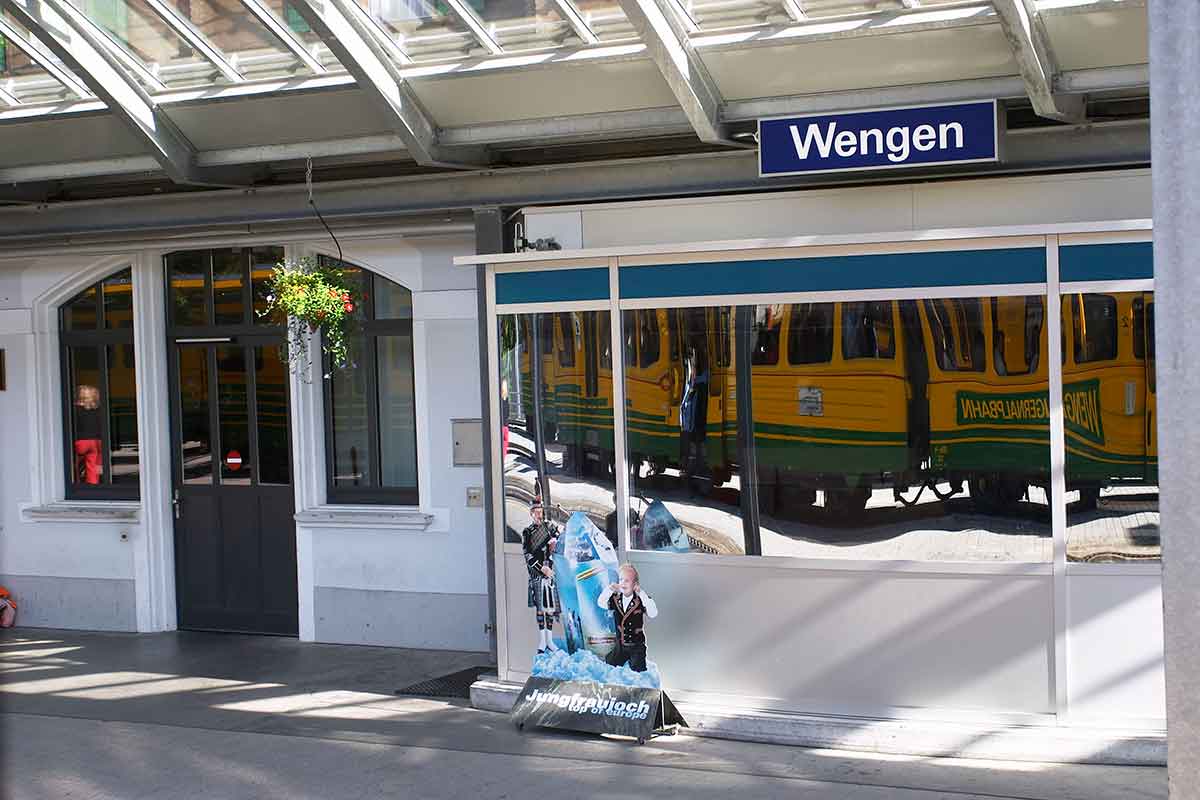
At Lauterbrunnen, board the 19.11 kilometres (11.87 miles) cogwheel Wengernalp Railway bound for Kleine Scheidegg.
This train winds past splashing waterfalls and towering trees past herds of brown and white cows grazing on the sunny alpine slopes.
The spotted cows wear leather collars and brass bells that jangle delightfully.
The scenery from this Jungfrau train is a picturesque vista of the Swiss countryside and one that shows off the beauty of the region.
For centuries, Swiss herdsmen have driven their cattle up the Jungfrau mountain to graze and produce milk for the world’s finest cheese.
The cog railway train stops at Wengen, which is a popular spot for skiing and hiking.
You’re likely to see groups of hikers getting off at this station carrying bulging backpacks and walking sticks.
If you’re an outdoorsy type, tackling the mountain trails on foot is an experience to tick off your to-do list.
The cog railway leaves Wengen and slowly ascends along the narrow-gauge rack-and-pinion track.
The snow-capped Eiger looms ahead while the green valley behind us slowly turns into a miniature Swiss alpine painting.
Jungfrau Railway
Eigergletscher or Kleine Scheidegg to Jungfraujoch
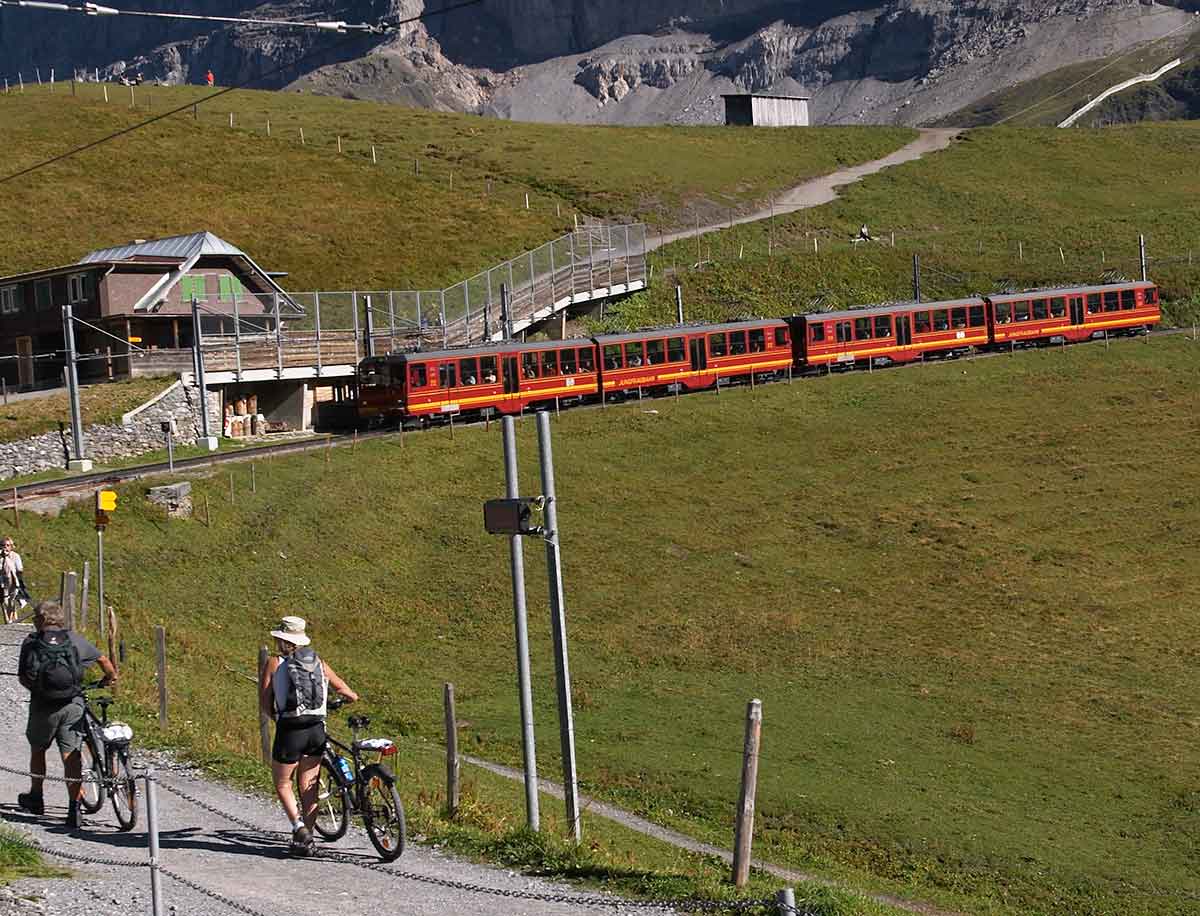
Change trains at Kleine Scheidegg for the final leg and a spectacular 50-minute ascent on the red-and-yellow Jungfrau Railway.
Built by Swiss railway pioneer Adolf Guyer-Zeller, this rack-and-pinion track climbs at a steep gradient of up to 25 percent.
Guyer-Zeller spent 16 years (from 1896 to 1912) building this railway under extreme conditions.
Average temperatures were -8°C and avalanches, lightning, storms and 250-kilometre-an-hour winds were the norm.
Now, the Jungfrau mountain railway is an international attraction and only one of the many attractions of the region and one of the most famous landmarks in Europe.
The Jungfrau railway ascends through open terrain and then plunges into the shadows of a long tunnel hewn out of rock.
At the first viewing station of Eigerwand, the floor-to-ceiling observation window provides a romantic view.
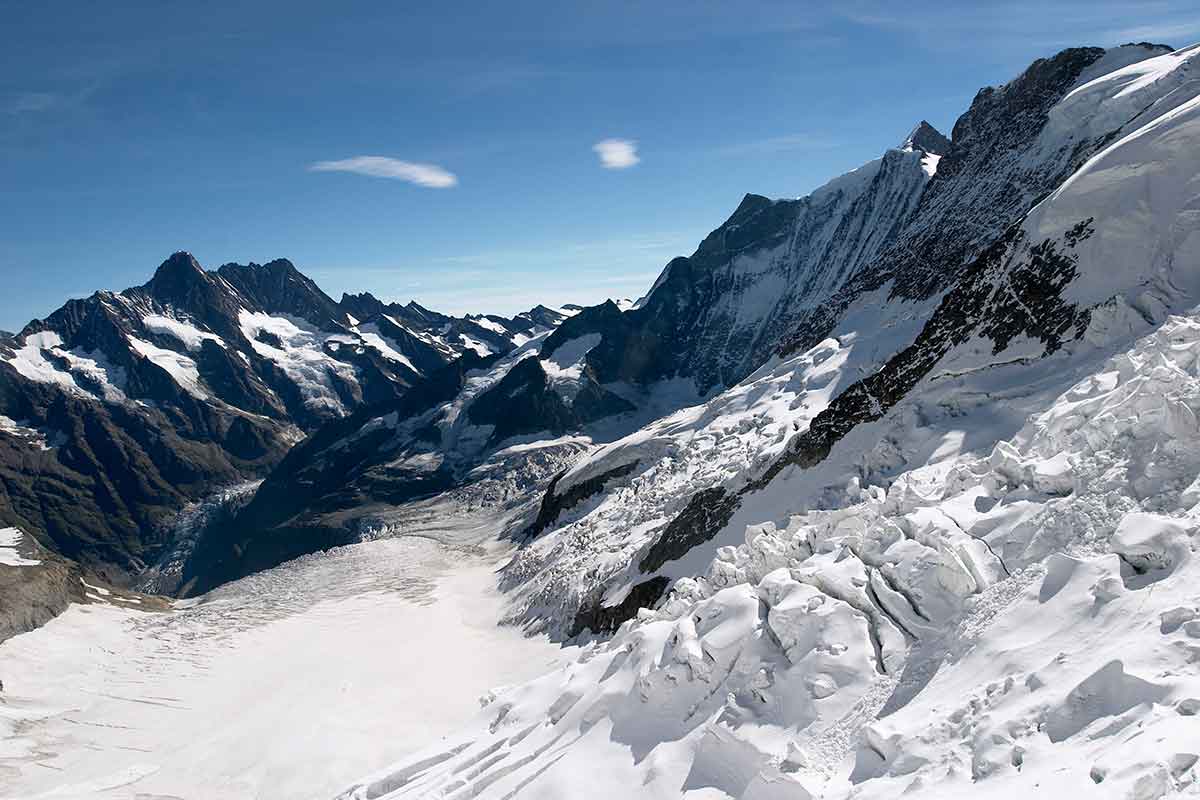
Swiss chalets are distant dots in the Grindelwald Valley.
The view from Eiger Station provides your first glimpse of the glacier, which is a breathtaking sea of undulating white mounds of snow and ice.
From here, the air begins to take on a thin frostiness and there are signs warning about the effects of the altitude.
You’ll start feeling a chill in the air and this is when you may need to put on extra layers of clothing. Make sure you bring a warm jacket, gloves and something warm to wear on your head.
Journey time from Interlaken to Jungfraujoch
2.5 hours after boarding the train at Interlaken, you will arrive at the dreamy white winter wonderland of snow and ice, the Jungfraujoch.
Jungfrau Railways tickets
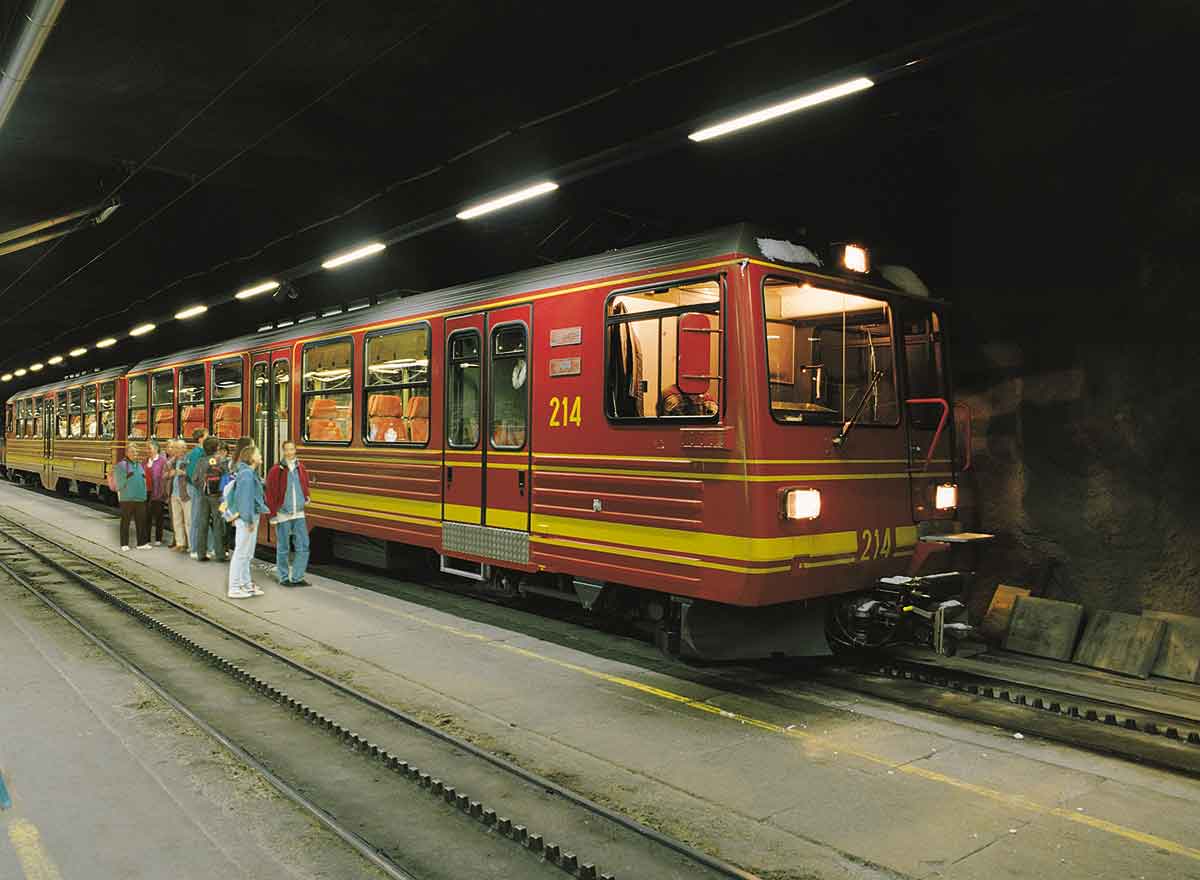
Buy a travel pass from Interlaken to Jungfraujoch. The ascent from Interlaken and descent from Kleine Scheidegg can be via Grindelwald or Lauterbrunnen. Book your return train tickets and entry to the Jungfraujoch here:
Interlaken to Jungfraujoch tours
If you prefer to take an excursion from Interlaken here’s a day tour where everything is organised for you including transfers from Interlaken to Grindelwald.
Other passes
Other tickets to consider is a ski pass and activities at the snowsports school.
Check out a range of Jungfrau tours here.
Things to do in Jungfraujoch
You could easily justify taking this trip for the experience on the trains and cable car alone.
If you’re not keen to participate in on-mountain activities, just gazing at the view of the top of Europe is reason enough to go.
The glaciers in the Alps are tempered bodies of ice that have worn down mountain ridges and deep valleys by eroding the rock underneath.
This occurred because they contain water and are not frozen solid to the earth.
During the ice age, Alpine valleys froze over and were filled with huge masses of ice, at an average yearly temperature of -22°C.
Deep U-shaped valleys in the high mountains, hollows or synclines in the feeder areas of the ice flows were created.
1- Visit the Ice Palace
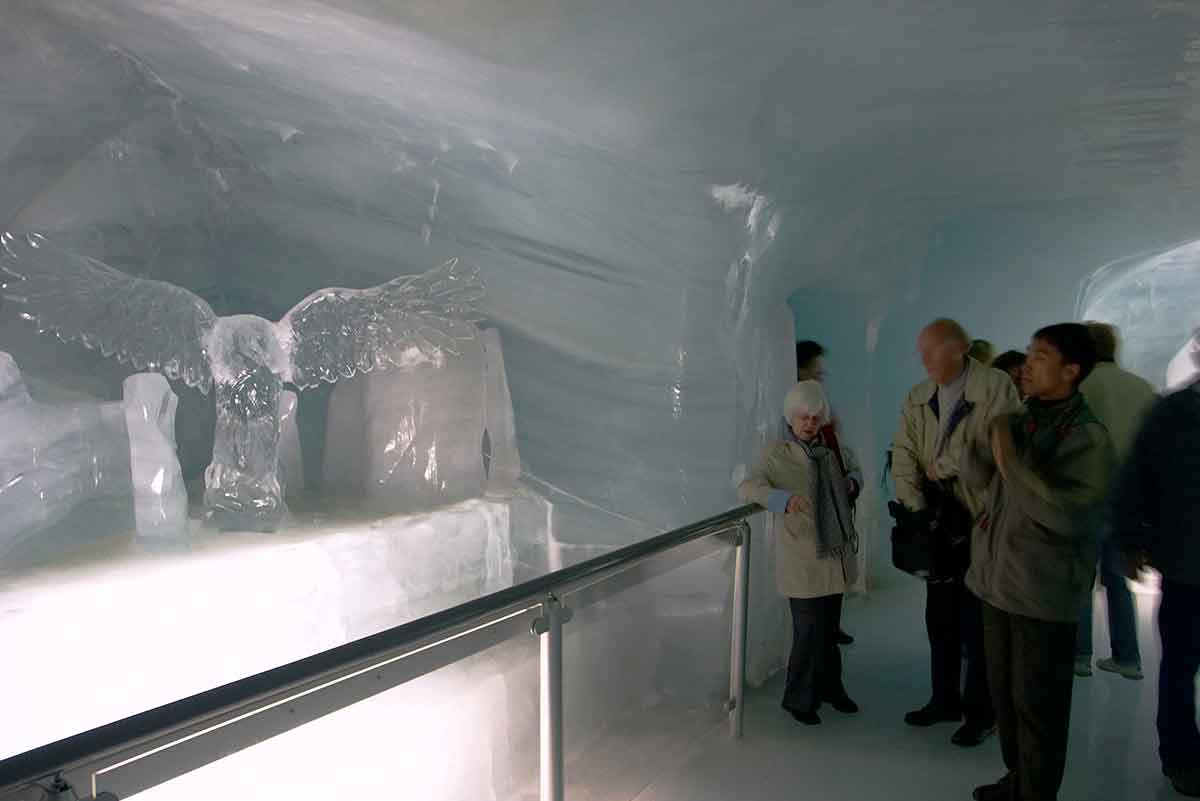
After lunch, our first stop is the Ice Palace, which was created by mountain guides who used picks to chip away at the ice to create halls and in the 1930s.
The 1000 sqm ice museum is situated in a cold and slippery tunnel 20m underneath the glacier.
It has a constantly evolving ice sculpture exhibition of eagles, bears, penguins and Eskimos.
The glacier moves about half a metre each year, so that means the Ice Palace’s roof has to be regularly altered.
Special equipment is used to offset the body heat produced by the 500,000 visitors each year, ensuring the temperature of the ice walls stays below -2°C.
The warmth generated by the visitors is recycled to heat the restaurants above.
2- Photograph the views
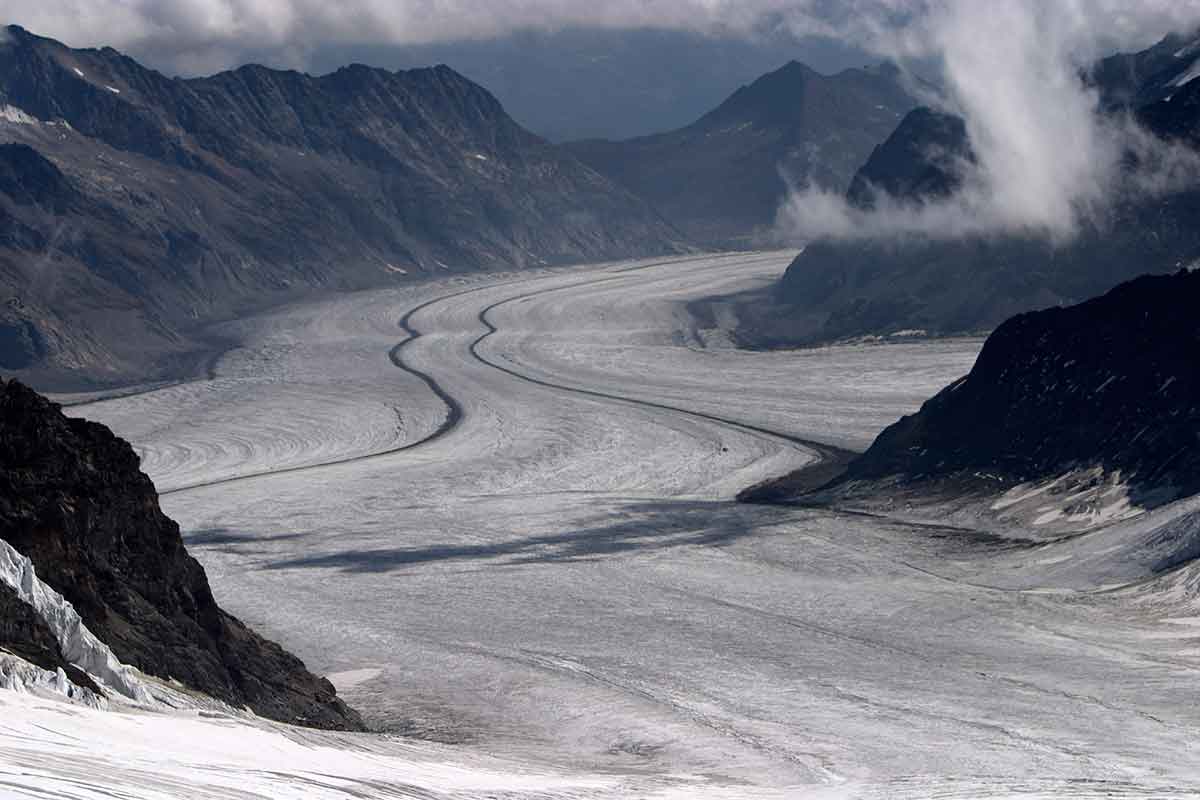
At the other end of the Ice Palace, we step out onto a plateau, where we walk among the clouds and peaks, absolutely thrilled to experience the rugged beauty of the Jungfrau Mountain Switzerland.
3- Visit the Sphinx Observation Deck
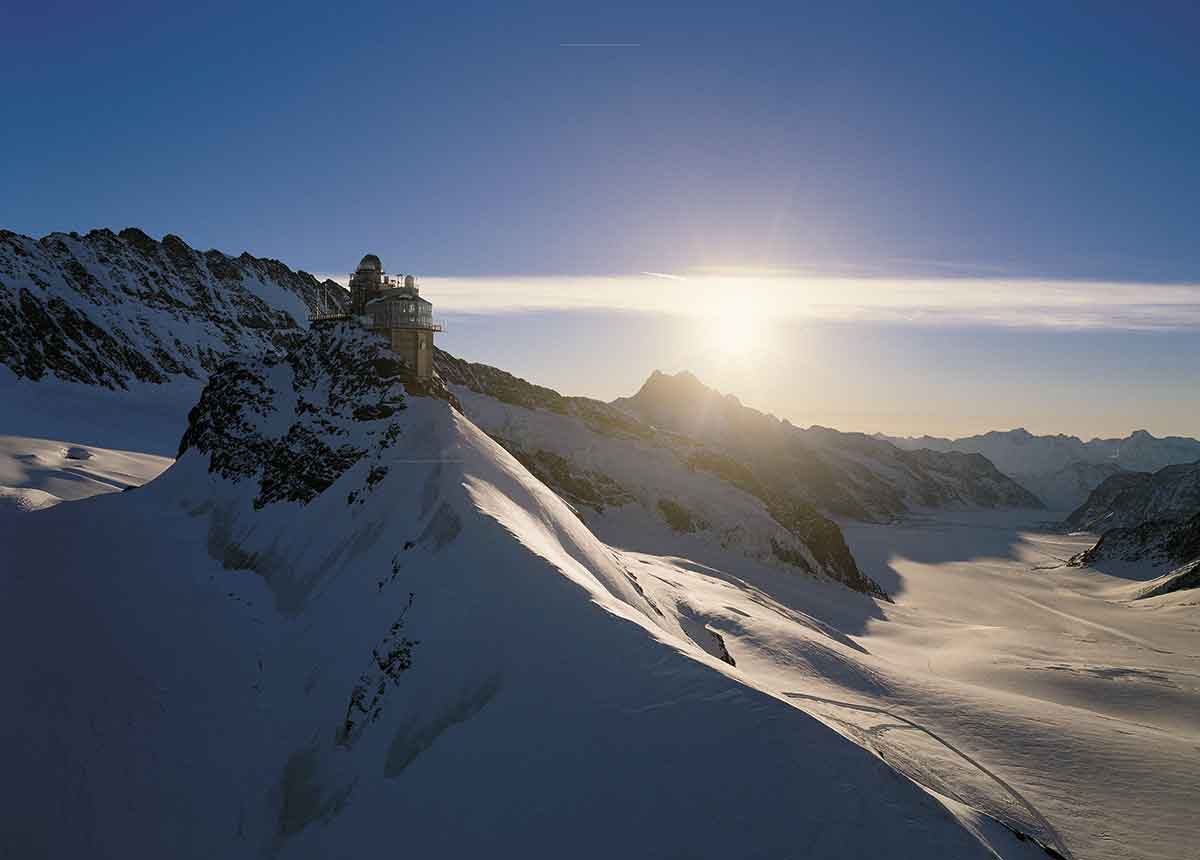
Higher up on the mountain, there is a 360-degree panoramic view from the glass-and-steel Sphinx Observation Hall and Terrace.
At 3471m, the Sphinx is the highest vantage point in Europe and the terrace has the best view of the 22km Aletsch Glacier.
4- Snow Fun Park winter activities
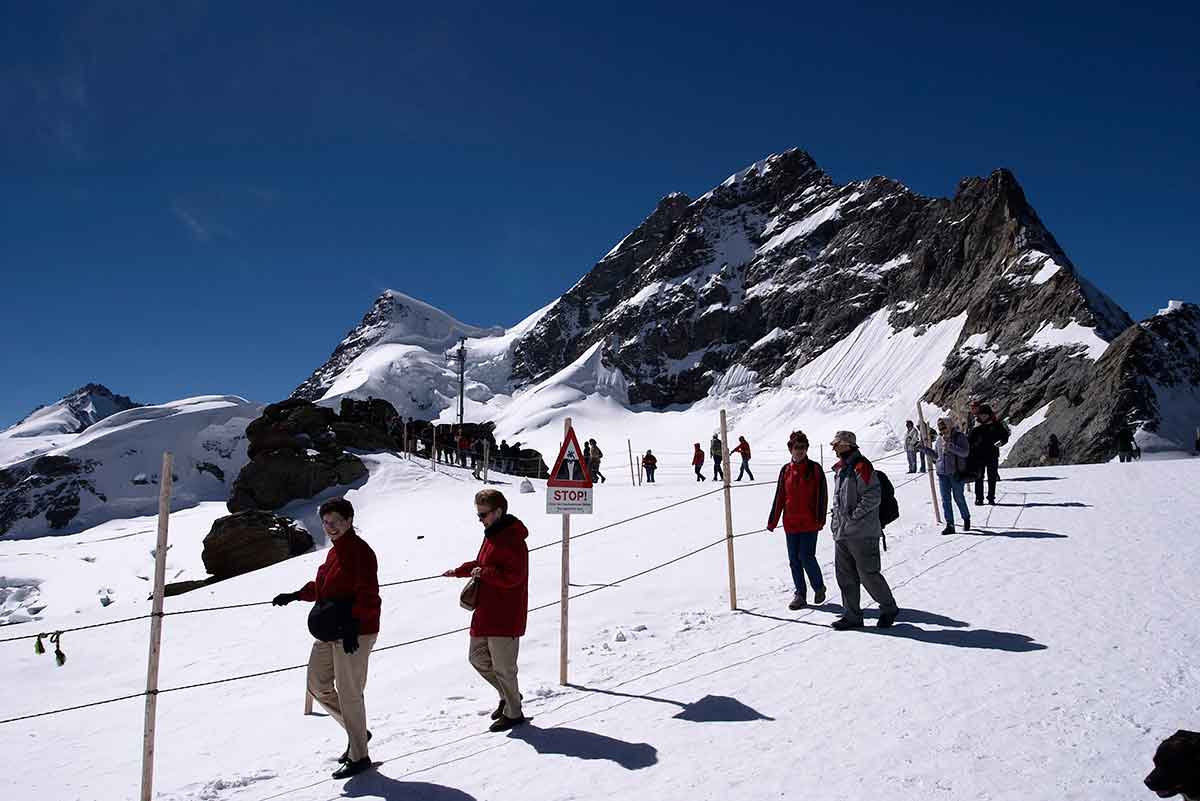
Virgin snow blankets the mountain in every direction and far below, people look like ants against the vast snowy canvass.
You can participate in fun activities in the Jungfrau ski region like snow tubing, sledding, try the Flying Fox or go skiing or snowboarding.
We walk through a long tunnel out onto the Aletsch Glacier, where there is a hive of activity.
Queues of people wait their turn to slide downhill on round snow disks, skiers whiz past and a couple of beginners fall off their snowboards.
5- Hike to Mönchsjochhütte
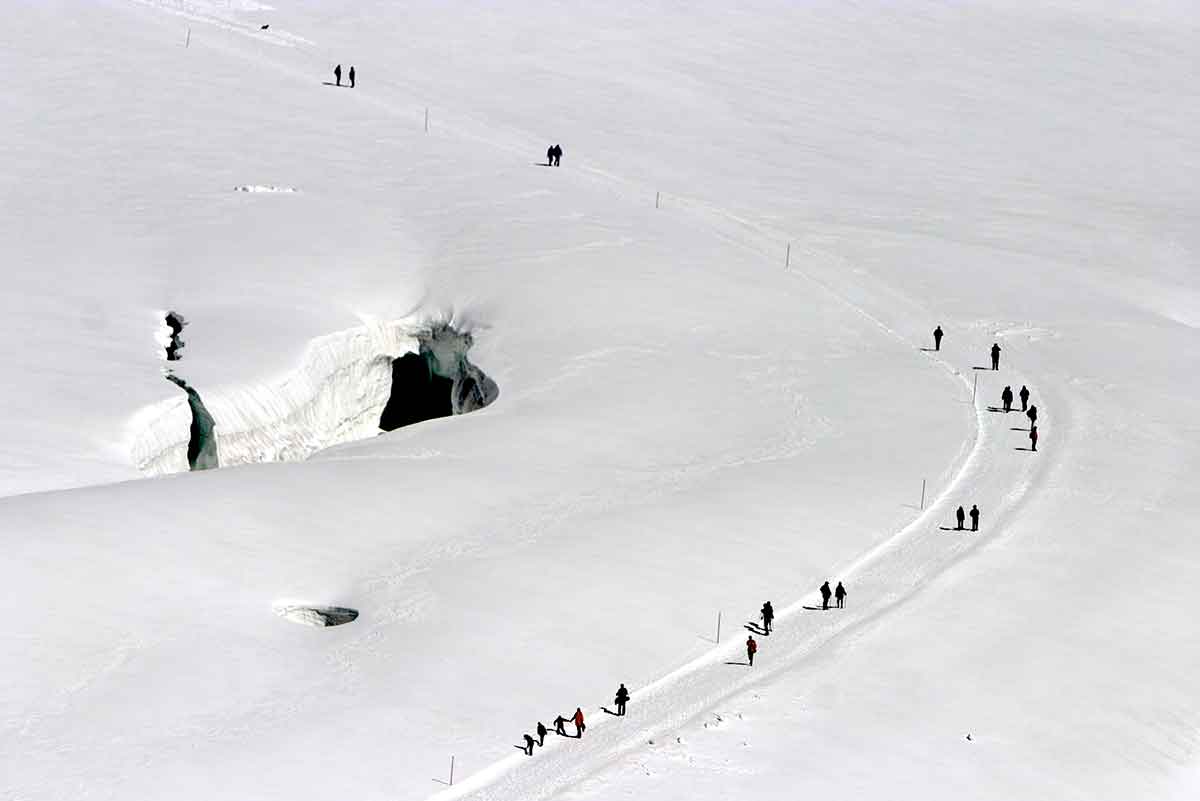
Small groups of hikers disappear into the distance, trekking through the remote landscape to Mönchsjochhütte, the highest-altitude serviced hut in Switzerland.
It’s a 45-minute trail hike to a hut that has amazing views of Central and Eastern Switzerland and the Valais mountains.
The hut also has dormitory accommodation and is a stunning spot to watch the sunset.
6- Hike the Aletsch Glacier
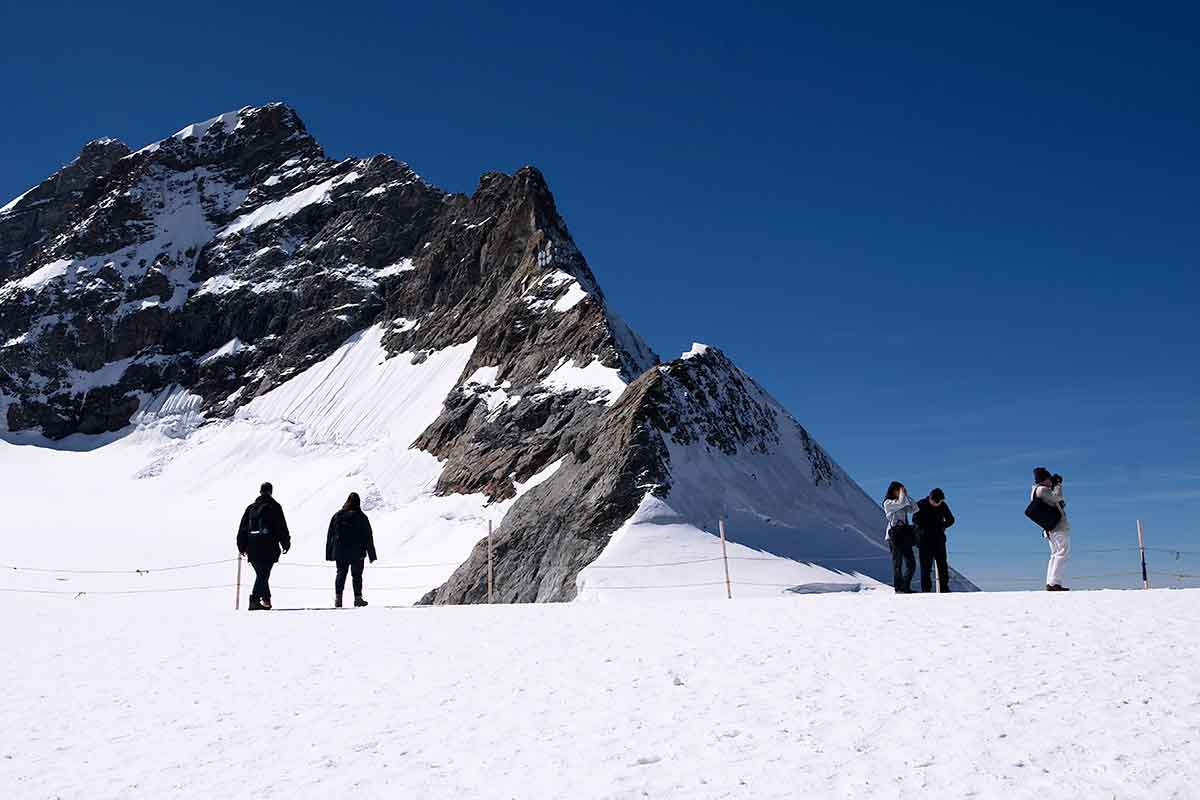
Hiking Europe’s largest glacier is a two-day tour that is available to inexperienced mountain climbers who are fit and are not afraid of heights.
The hike starts with a walk from the Jungfraujoch along the Jungfraufirn to the Konkordia hut.
Then, on the second day, there’s a six-hour hike over the Aletsch glacier.
7- Drink Swiss chocolate
Before leaving, we stand at the large glass windows near the souvenir shop drinking hot chocolate and nibbling on a bar of Swiss chocolate, soaking in the amazing scenery.
Somehow, the chocolate tastes so much better.
8- Dine at the Restaurant Crystal
By now, I’m feeling light-headed from the altitude and I’m looking forward to a spot of lunch.
A table by the window at Restaurant Crystal offers sweeping views of snow and ice.
For more Switzerland attractions read:
- 20 Famous Switzerland Landmarks
- 20 Fairytale Castles In Switzerland
- When Is The Best Time To Visit Switzerland?
- The Amazing Jungfrau Railway Train
- 20 Swiss Cities
- 15 Things To Do In Lucerne
- 25 Things to Do In Zurich
- 5 Day Trips From Bern
- 10 Swiss Alps Bucket List Experiences
- Swiss Alps Witches Festival
- Winter in Switzerland
- 15 Things Switzerland Is Famous For
Where to stay in Jungfrau
Wengen
The Victoria-Jungfrau Grand Hotel and Spa (tel: +41 33 828 2828) has counted the emperor of Brazil and Mark Twain among its guests.
Book your hotel in Wengen here
Interlaken
The three-star Hotel Goldey (tel: +41 33 826 44 45) is located by the river and guest rooms have some magnificent views of the Jungfrau Switzerland.
Book your hotel in Interlaken here
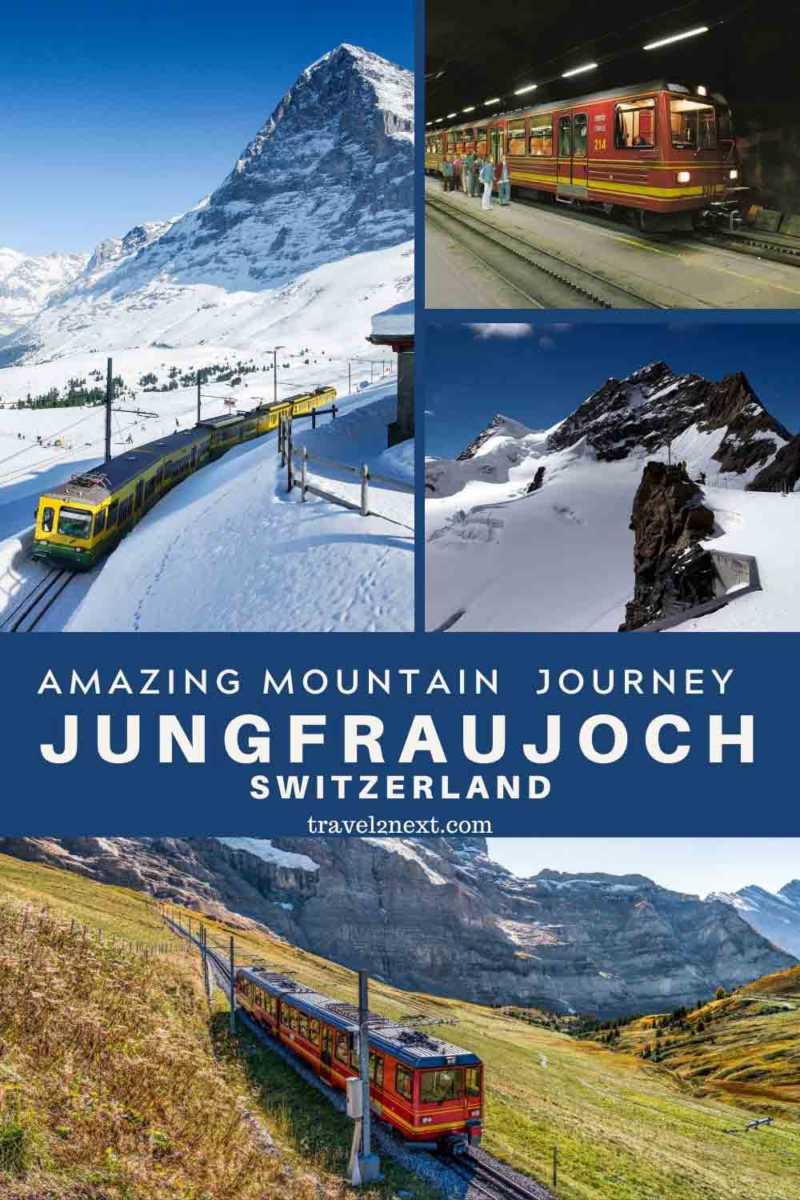
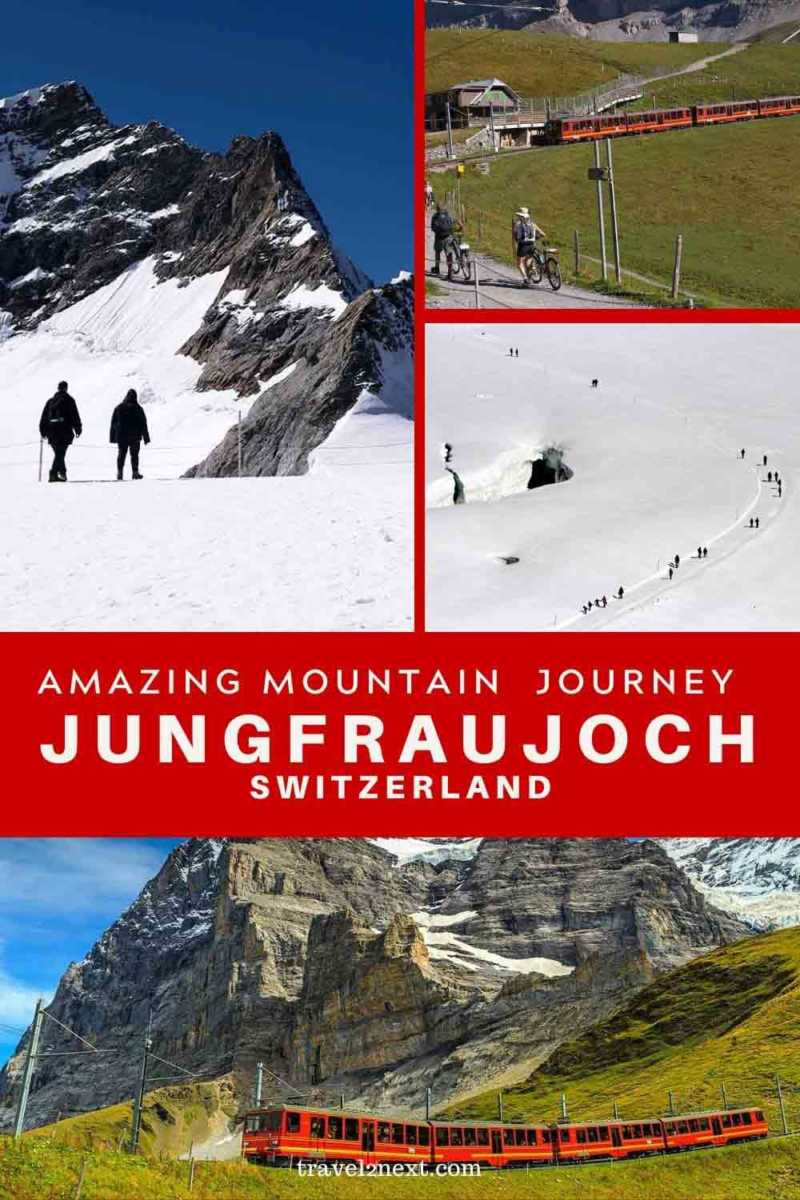
Plan Your Trip
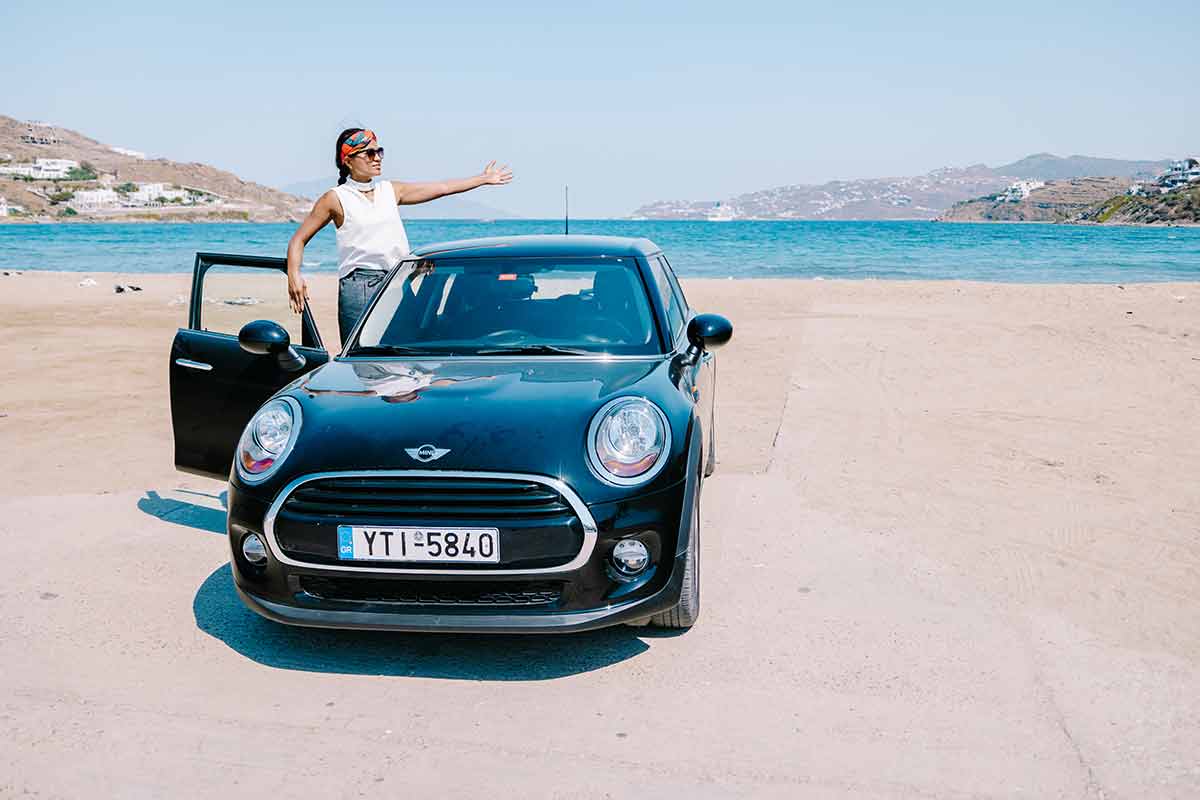
Rent A Car – Find the best car rental rates at Discover Cars. They compare car hire companies to provide you with the best deal right now.
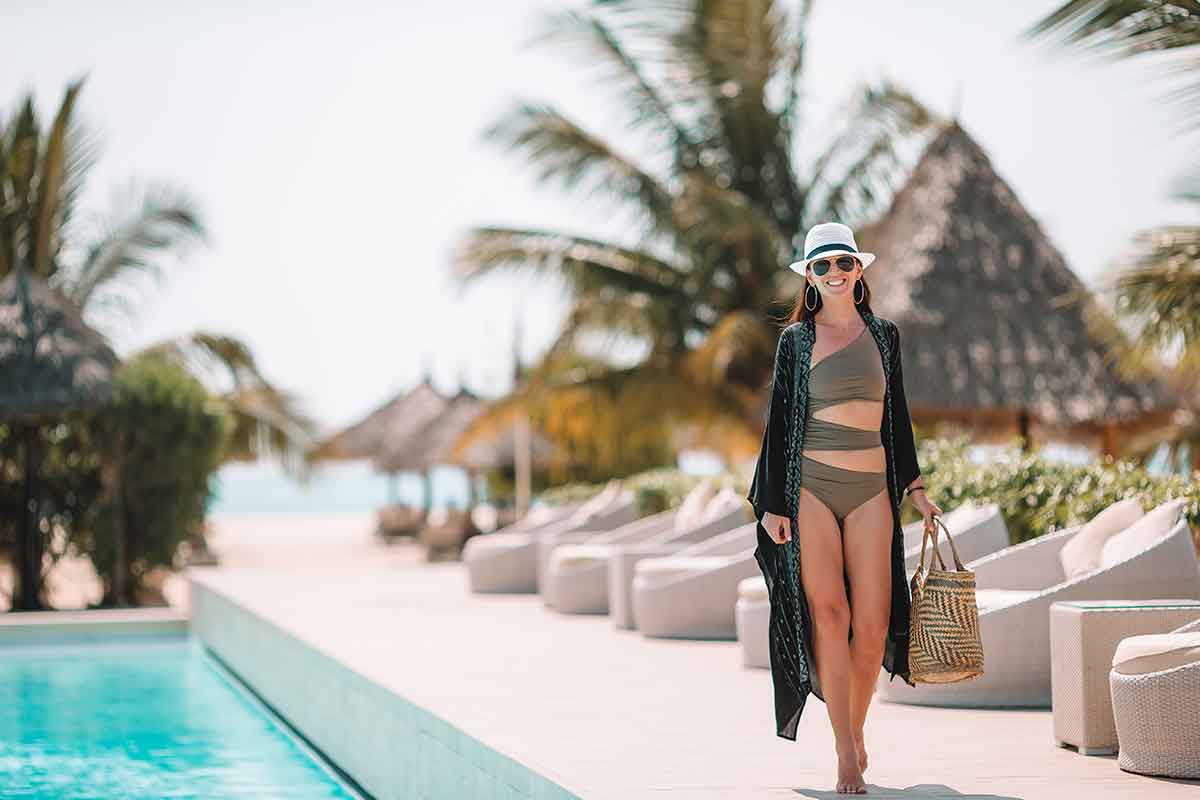
Find A Hotel – If you’re curious about this article and are looking for somewhere to stay, take a look at these amazing hotels.
